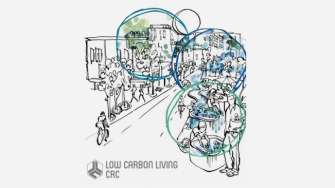Program 3: Engaged Communities

This project proposal addresses a rapidly-growing anomaly in the way that greenhouse gas emissions associated with electricity consumption (Scope 2 emissions) are accounted for in Australia. The report has been prepared by Philip Harrington and Dr Hugh Saddler of SPR with input from Dr Iain Macgill, Associate Professor, UNSW, Maria Balabat, Senior Lecturer, UNSW, Graham Sinden, Director – Climate Change and Sustainability Services, Ernst & Young, Caitlyn Melia (Director) and Rachael Burgess (Director, Acting), National Inventory Team, Australian Government Department of the Environment and Energy.
Phil Harrington SPR
Complete
05/2018 to 03/2019
- Publications
- Partners
CRCLCL Project Reports
RPSP0021: Final Report: Calculating the Market-Based Emissions-Intensity of Electricity Consumed in Australia
This report highlights that, at present in Australia, two different approaches to defining the greenhouse emissions associated with electricity consumption are being used by different parties and in different contexts. These are known as the regional and market-based approach. While both are valid and appropriate in different contexts, the use of the two by different parties, and without reconciliation or transparency, raises certain risks:
- Non-recognition, in certain contexts, of the zero-carbon status of electricity consumption being paid for and consumed by certain parties, which may lead to economic losses for them;
- The potential for double-counting of the emissions-benefits of renewable energy generation projects or output by different parties.
At the same time, there is an opportunity to define, and populate with available data, a market-based methodology for greenhouse gas emissions associated with electricity consumption. This approach – which would complement and not replace current regional-based accounting constructs – is consistent with international.
sp0021 final report emissions itensity (1459013 PDF)